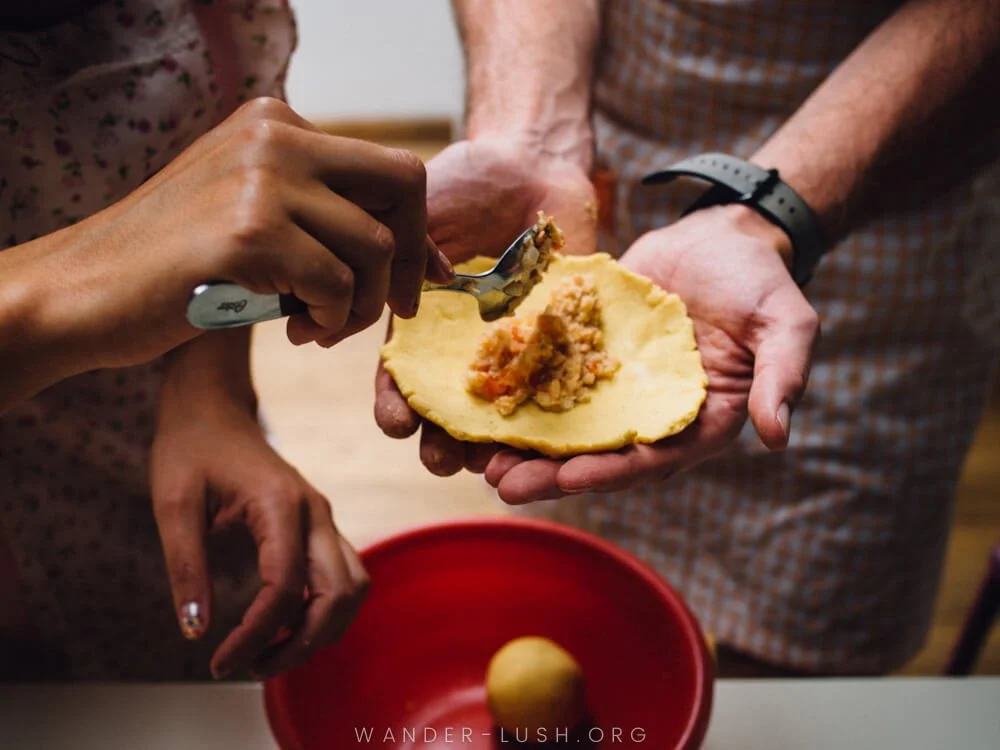In 2020, I met fascinating people who are dedicated to creating new ways of working and traveling.
During the summer and winter of that year, we explored concepts and listened to experts on topics such as happiness, slow tourism, mountain expeditions, and cultural identity in tourist destinations.
What unites all these experts?
A genuine passion for their work and solid principles guide them in making sound long-term decisions.
Read their stories
Knowing a new destination is a challenging activity, to enjoy traveling an unknown territory it's necessary to be willing and open to appreciating other ways of life, culture, and all the aspects that this entails. We know that the best way to discover the place entirely we visit is through direct contact with the people who live there; they are the true connoisseurs of local dynamics.
5Bogotá was born 7 years ago, conceived by its two co-founders who, in addition to being mother and daughter, share the love for their city. They added their professional experiences and decided to undertake in tourism by creating an initiative that integrates places outside the traditional tourism circuit and also connects a network of local hosts who also share in-depth knowledge and passion for Bogotá.
In recent years, the term sustainability has acquired a greater interest in various fields, especially the younger generations, who have expressed concern about caring for the environment and the impact of economic activities on society. Globally, there is a growing understanding of the increasingly notorious effects of environmental and social damage.
Today we will learn about some of the benefits of implementing sustainable practices in tourist destinations; we will understand what sustainable decisions we can make as visitors to a destination and why it is important to preserve the identity of the community that will welcome us.
This has been a challenging year; we all have been affected in some way; there has been a need to adapt to new standards, and ways of working, studying, and living. In times like these, it may seem difficult to set goals and, more importantly, accomplish them.
Today I would like to share with you an interesting point of view from a particular group of people who live and work in conditions that may be seen as hard for most of the world. They are the people who take care of travelers looking to reach a specific goal, getting to the top of some of the world’s highest mountains.
This year we have been forced to stop our accelerated pace of life, but there are many people who, for years, have decided to see life from a different, internal, and authentic perspective. This is how the slow movement was born; it invites us to look inside ourselves through sustainable actions in various sectors including slow food (with kilometer 0, the consumption of local products), slow schooling (with the inclusion of history and local characters in educational programs), slow parenting (as parents reduce their working hours to dedicate more time to their children and transmit their values to them).
When was the last time you asked why the results you are getting were not the ones you were expecting? Maybe there was something you missed or did you not see the whole picture? I believe this often happens when we focus on measuring only facts and not the impact those facts have on our team or on us, the people who are trying to achieve a collective goal.







Agrotourism is much more than tourism, so it has many possibilities. Agrotourism allows knowing the productive process of crops and other agricultural activities. When receiving visitors, hosts, and rural nuclei perceive economic, social, and environmental benefits, allowing the perpetuation of the activity and conserving crops, livestock, and other local species, thus achieving a more sustainable rural world.